How to get started?
If you have an advanced, incurable, or an earlier diagnosis of a poor prognosis cancer, ask your oncologist about accessing free CGP through Omico today.
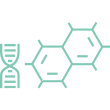
More effective treatment

Fewer side effects

Potentially extend life

Maintain quality of life
Precision oncology is a ground-breaking and rapidly evolving approach to cancer treatment. It helps doctors choose the most effective treatment by studying the unique features of a person’s tumour. Cancer starts when certain changes happen in the DNA of a cell. DNA is like the instruction manual for a cell. Some DNA changes cause cancer to grow uncontrollably. Precision oncology identifies these changes and finds precise treatments that target the changes aiming to slow or stop the cancer from growing. In this way, treatment is precisely matched to the features of the person’s cancer. This personalised approach can mean better treatment results and fewer side effects, making the treatment journey smoother for patients.
Watch Mandy Ballinger, one of our experts, explain how precision medicine can improve outcomes.
The newest precision oncology treatments are almost always tested in clinical trials before they become widely available.
Clinical trials can be a positive step to accessing potentially ground-breaking treatments tailored precisely to your cancer’s fingerprint. Everyone enrolled on a clinical trial gets the treatment being tested or the current standard of care treatment that they would normally get outside the clinical trial. There is no placebo or non-treatment option used in cancer clinical trials.
Being on a clinical trial also means that your health and wellbeing is closely monitored by a medical team throughout the trial. Your safety and wellbeing are a priority to the researchers who run clinical trials.
To participate in our Cancer Screening Program (CaSP), you must be aged 16 years and older, and have advanced or incurable cancer, or an earlier diagnosis of a cancer that has a poor prognosis, i.e., the cancer has a low chance of being cured or controlled by treatment. Precision oncology is based on genetic changes within your tumour tissue. So, when you have completed comprehensive genomic profiling with CaSP and we know the specific features of your tumour, we can determine if there are potential targeted treatments or clinical trials that you can be matched to.
We encourage you to talk to your cancer doctor (oncologist) to understand if accessing CaSP is appropriate for you.
Even if a cure for your cancer isn’t currently possible, CGP and treatment matching can offer valuable opportunities to optimise your treatment plan, reduce treatment side effects, manage symptoms, potentially extend your life, and maintain your quality of life. It’s about finding the best possible approach to support you through your treatment journey.
When considering treatment options for advanced, incurable, or poor prognosis cancers, it is helpful to have as much information as possible about your cancer to guide treatment decisions effectively and increase the chances of finding a precision treatment that matches your cancer.
To date, approximately 75% of patients who have undergone CGP in our Cancer Screening Program (CaSP) have received a recommendation to be potentially matched to a treatment. Not everyone referred to CaSP for comprehensive genomic profiling will get a “fingerprint” result that has a matching precision treatment. Sometimes, even if a precision treatment is identified there may be no clinical trial in Australia or the potential treatment may not be available. You and your doctor can discuss which treatment options might be best for you.
If a clinical trial with a matching precision treatment starts in Australia after your oncologist gets your results and report, Omico will contact your referring doctor with the information, allowing them to discuss the option with you.
Your participation in CaSP not only provides you and your oncologist with more information about your cancer, which may help to match you to a precision treatment, it also advances the understanding of cancer and treatment, potentially benefiting others facing similar challenges in the future.
Omico is a national, not-for-profit organisation changing the way we fight cancer by accelerating access to precision oncology. Our work is made possible through funding and support from the Australian Government, state government and many organisations and professionals that specialise in cancer care.
Learn more about our partners

Rare Cancers Australia (RCA) provides support and advocacy for patients wishing to participate in Omico programs. If you or your family need advice or help, a place to learn or simply someone to listen, RCA can help.

If you are aged from 12 to 25 and your world has been turned upside down by cancer, Canteen provides support as well as someone to talk to.
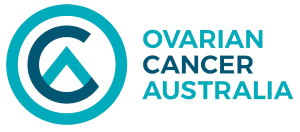
Providing personalised and specialised care to anyone in Australia facing the impacts of ovarian cancer.

The Pancare Foundation are a leading charity committed to inspiring hope, raising awareness, supporting families and funding research for upper gastrointestinal (GI) cancers.
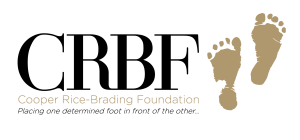
The aim of CRBF is to fund clinical research to find a cure for sarcoma, while raising awareness of sarcoma in the greater community in an effort to promote early diagnosis, and to provide support for sarcoma patients and their families.

Peace of Mind brings support, here and now and is the only organisation of its kind in Australia to help brain cancer patients with one on one personal support.

Liver Foundation supports patients and loved ones as you navigate life with liver and biliary cancer. Liver Foundation’s support line is staffed by friendly nurses who are experts in primary liver cancer, biliary cancer and underlying liver disease.

The Australian Rare Cancer (ARC) Portal is an online referral service that aims to improve outcomes and access to research for Australians diagnosed with rare cancer. Working together with your cancer specialist, the ARC Portal offers expert clinical advice, particularly for Australians who live far away from major metropolitan centres where cancer centres may not be available.
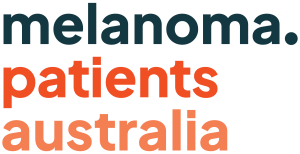
Melanoma Patients Australia is an independent, not-for-profit charity dedicated to providing FREE access to specialist and lived experience support for all Australians affected by Melanoma.

Inherited Cancers Australia is the only national charity dedicated to reducing the impact of inherited cancer risk across generations. They empower individuals with the information and support they need to understand and manage their risk. Through a connected and supportive community, they provide a safe space for people to share their lived experiences, alongside free access to genetic counselling, peer support, expert-led education, and medically reviewed resources.
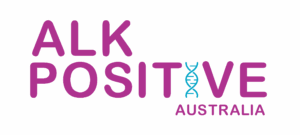
ALK Positive Australia supports Australians diagnosed with ALK positive lung cancer through accurate information, patient support and community connection. They also advocate for timely access to treatment and fund research to drive better outcomes for patients.